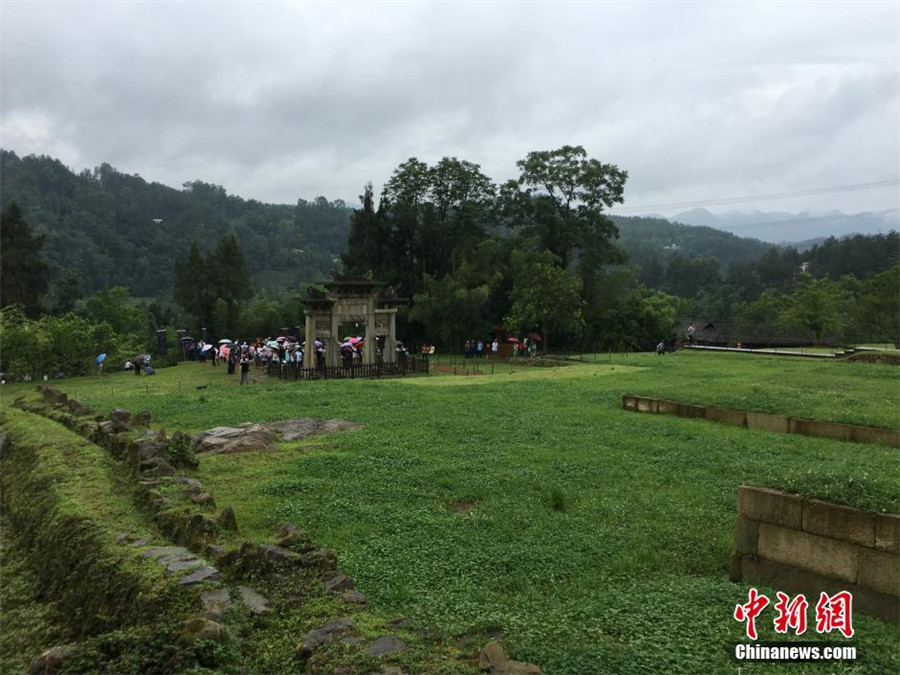







 |
|
Tourists visit the Tangya Tusi fortress ruins, in the Xianfeng county of Central China's Hubei province, on June 11, 2016. [Photo/Xinhua] |
Tusi was a tribal leader appointed as an imperial official by the central government. Chieftains ruling the Tangya Tusi territory were surnamed Qin and they handed down the power to 18 generations over more than 460 years, until the Qing Dynasty (1636-1912), when chieftainship was abolished and the fortress was abandoned.
At the Tangya site today, the ancient government offices are gone, but alleys are preserved. Statues, a cemetery and an ornately decorated memorial archway still stand there.
The other two Tusi sites included in the UNESCO world heritage list are the Hailongtun castle ruins in Guizhou province and the Yongshun old Tusi town in Hunan province.